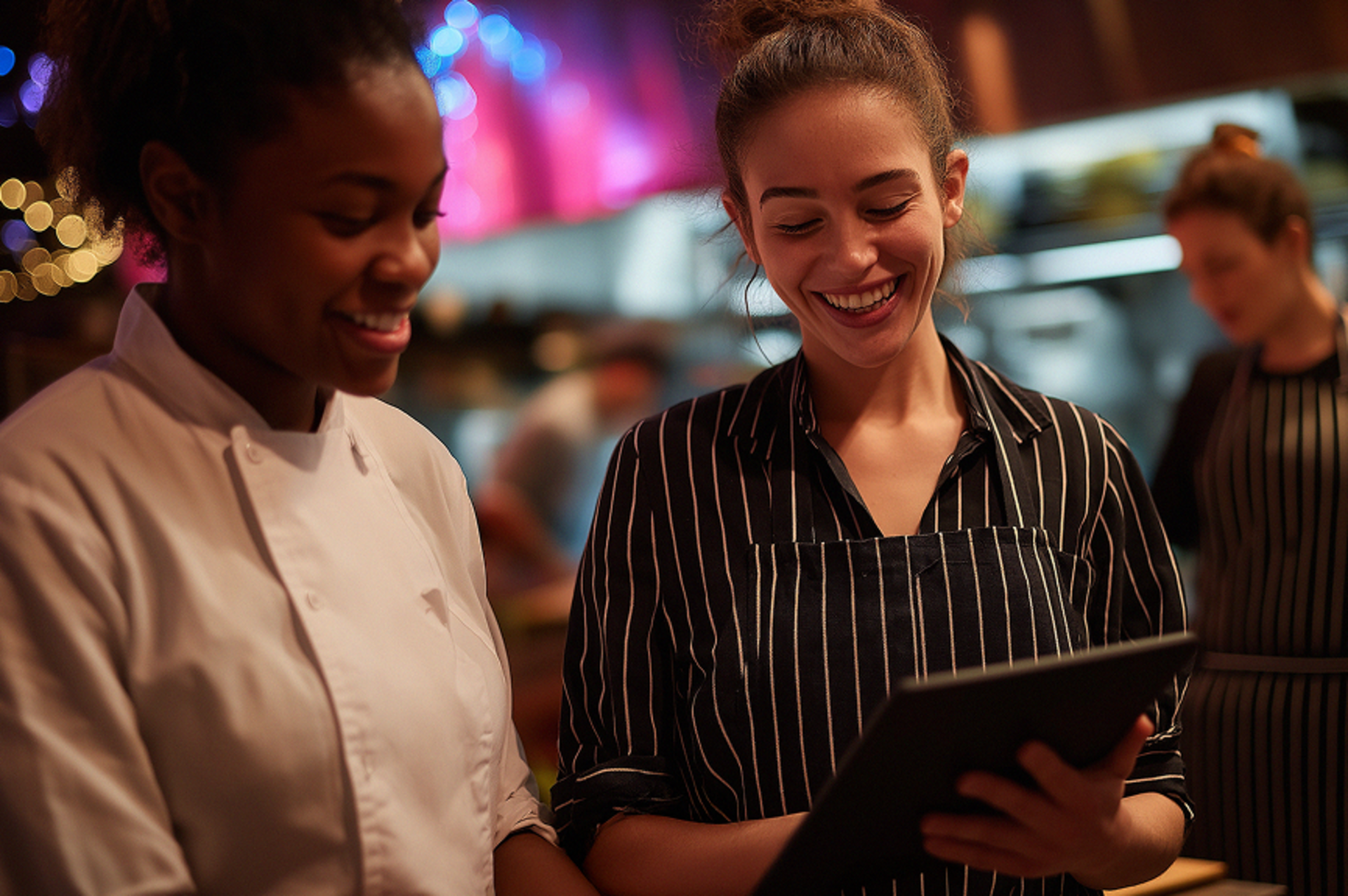Why work shouldn’t come before wellbeing: Rethinking hospitality culture

For too long, the hospitality industry has been fuelled by a mindset that celebrates sacrifice.
Long hours, skipped meals, split shifts and 'just powering through' are often worn as badges of honour.
But as burnout rates climb and turnover remains one of the highest across industries, it's time to challenge the belief that strength in hospitality means self neglect.
The legacy of burnout: Where did this mindset come from?
Hospitality can be tough. The pace is fast, the pressure is real and the demands can build quickly.
Historically, the sector has been shaped by fast paced service, unpredictable customer interactions and the glorification of ‘doing whatever it takes’.
From kitchens to front of house, stories of chefs sleeping in storerooms or bartenders working double shifts with no break have long been normalised.
This sacrifice mentality is deep-rooted and, in many cases, passed down as a rite of passage. But it comes at a cost.
A staggering 84% of hospitality professionals have experienced mental health challenges during their careers (The Burnt Chef Project, 2024).
This isn’t just a statistic, it’s a signal that the industry’s traditional approach to ‘resilience’ is no longer sustainable.
Putting people first = Better performance
The idea that wellbeing and performance are at odds is outdated. Research increasingly shows that well-supported teams outperform burnt-out ones:
A recent Deloitte study found that 64% of employees feel more satisfied in roles where their mental health is genuinely prioritised (Deloitte, 2023).
When staff feel safe and supported, they don’t just get through the day, they thrive. That energy shows up in guest experiences, too.
Businesses that build wellbeing into the fabric of their operations don’t just create happier teams, they create teams that stick around.
In a sector where recruiting and retaining talent is an ongoing challenge, a people-first culture helps turn short-term hires into engaged, long-term contributors.
One of the most impactful shifts a business can make is reframing wellbeing as a performance strategy, not just a 'nice to have'.
From operator insight to industry action
Some hospitality leaders aren’t just talking about wellbeing they’re building it into how they operate, with simple but meaningful actions that reflect a genuine culture shift.
Take The Alchemist, for example, where wellbeing is approached through prevention rather than reaction.
Hannah Plumb, Talent and Culture Director, recently shared how their focus is on removing the conditions that can contribute to burnout, such as insufficient breaks, limited rest opportunities and post-shift routines that don’t support recovery.
Their approach prioritises rest, nourishment and proactive mental health care, helping people stay balanced and mentally well as part of their everyday experience, not just when issues arise.
From a commercial business perspective, this kind of prevention-first thinking just makes sense. It strengthens wellbeing, safeguards productivity, helps reduce turnover and ultimately supports long-term performance.
So Let’s Talk, the social enterprise founded by Patrick Howley, is helping reshape the wellbeing conversation from the inside out.
Through workshops and venue partnerships, they equip operators with practical tools, like how to create a 'reset break' culture or how to shift the tone of team communication.
Their work shows how external support can empower businesses to make meaningful cultural change from the ground up, and proves that wellbeing doesn’t have to be complicated to have impact.
These aren’t sweeping, expensive transformations.
They’re small, intentional changes that, when supported by the right tools and partners, can create lasting cultural impact.
Culture change doesn’t have to be complicated, but it does have to be intentional.

Small steps, big shifts
Whilst no two teams are the same, there are some proven ways to create a stronger, more supportive culture that works in the real world. Here’s where to start:
Review your break culture. Are breaks respected, encouraged and accessible to all, not just those who smoke?
Introduce one new wellbeing habit. Whether it’s a weekly team shoutout, a 2-minute reset moment or encouraging movement on breaks, small routines make a big difference.
Support managers with micro-training. Even a short conversation around leadership language - how to offer feedback, check in and give clarity - can help build psychological safety.
Ask your teams what they need. Use anonymous feedback surveys or pulse surveys, such as through our Engagement tool, to uncover pain points and opportunities. The key is to follow up with small, visible actions to show you're listening.
Foster everyday connection. Tools like our Engagement tool help team members feel informed, included and valued from day one.
With internal comms, company news and group chats all in one secure place, you can ensure communication is centralised, consistent and compliant, without relying on unregulated apps like WhatsApp.
Even small steps, when taken consistently, can lead to a big shift in how your team feels and performs.
It's time to redefine strength
What if strength in hospitality looked like:
Taking your break without guilt?
Supporting a colleague through a hard day instead of telling them to ‘toughen up’?
Having leaders who check in, not just check tasks?
Rewriting the narrative doesn't mean lowering standards. It means recognising that a thriving team is the foundation of outstanding service.
Let’s ditch the burnout badges and rethink what success really looks like. Strong performing teams aren’t the ones who suffer in silence, they’re the ones who feel supported, seen and ready to show up.
Because in hospitality, taking care of your people is taking care of your business.
Creating a healthier hospitality culture doesn’t have to be complex, but it does need the right tools and intention. Our tech solutions, including our Engagement tool, make it easier to listen to your teams, foster daily connection and turn small changes into lasting impact.
If you're looking to build a more supportive, people-first workplace, book a demo to see how we can help you get there.




